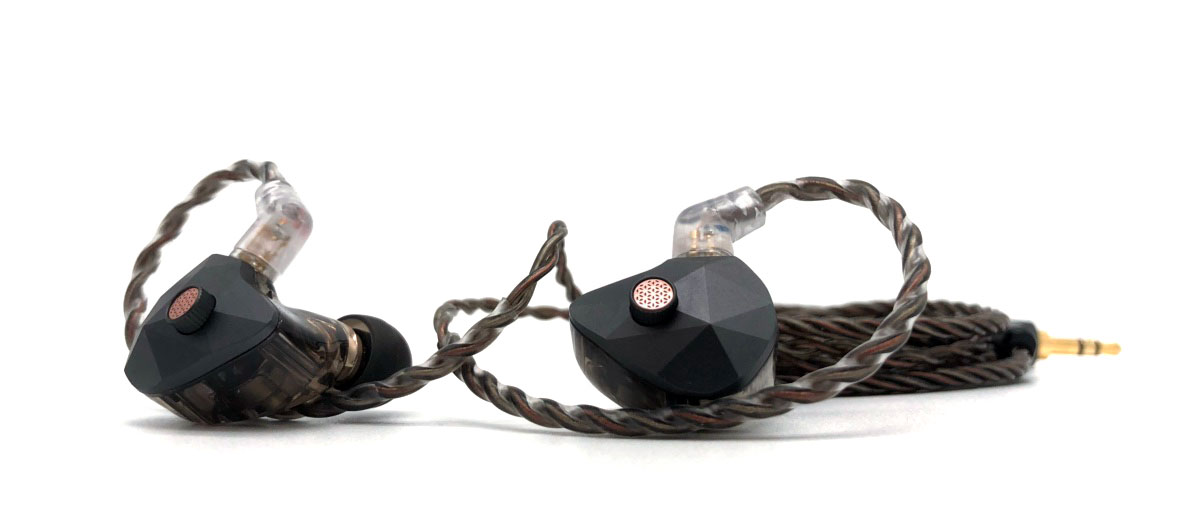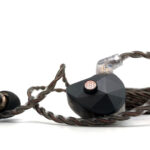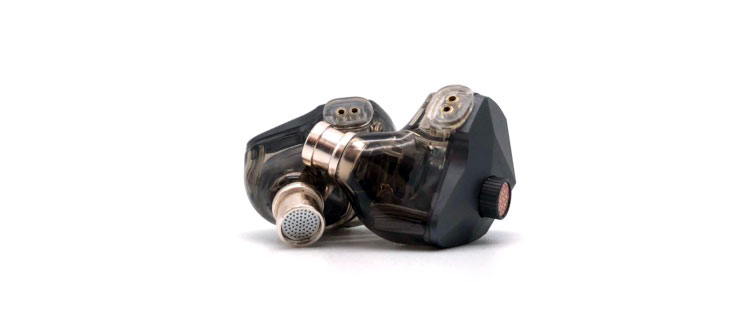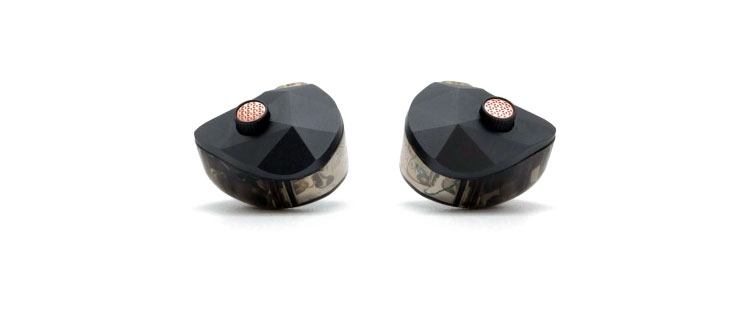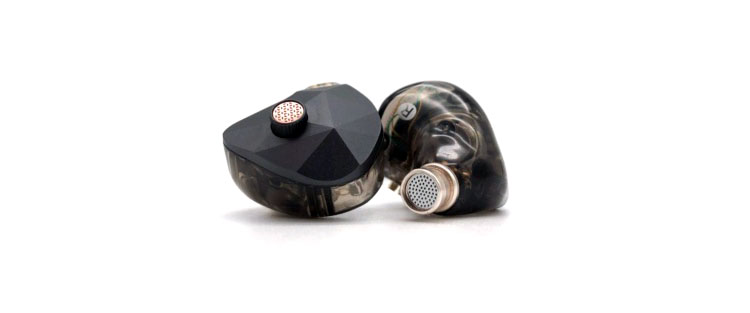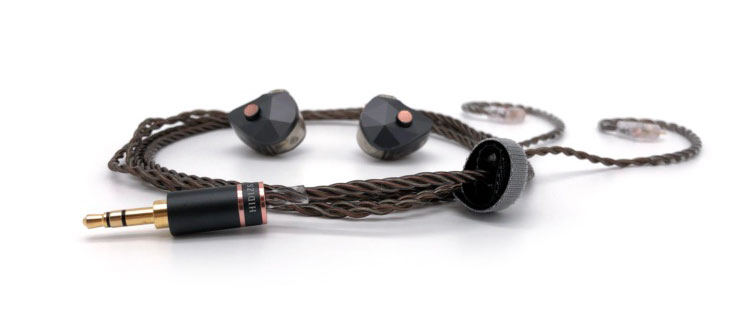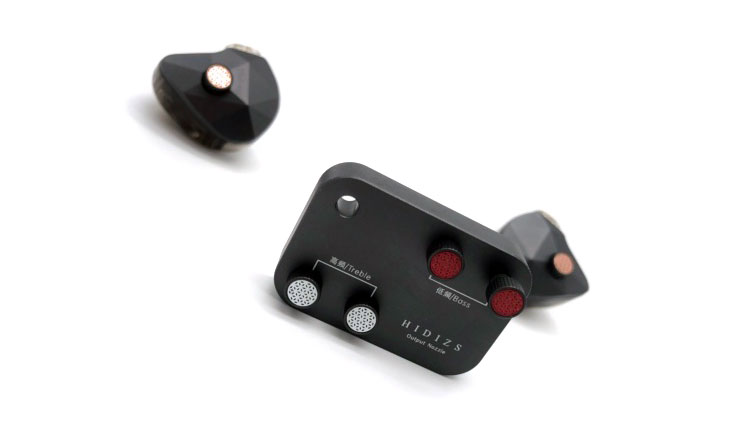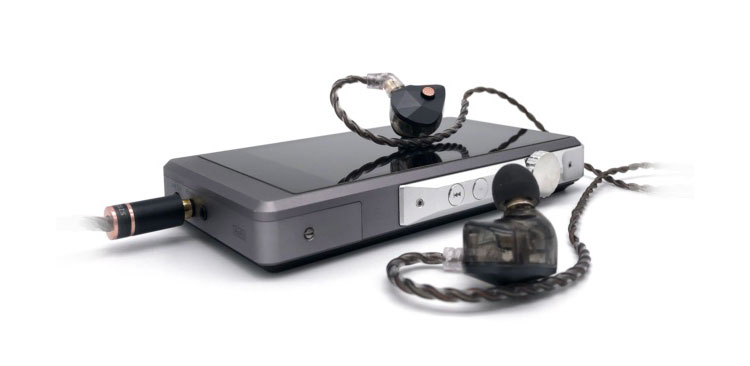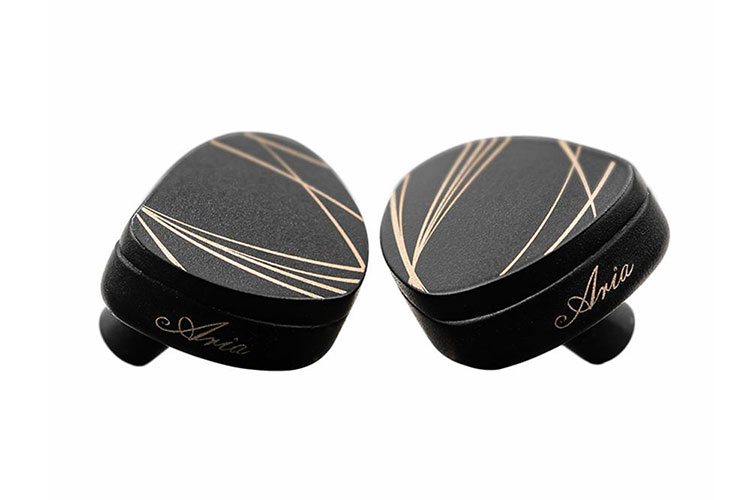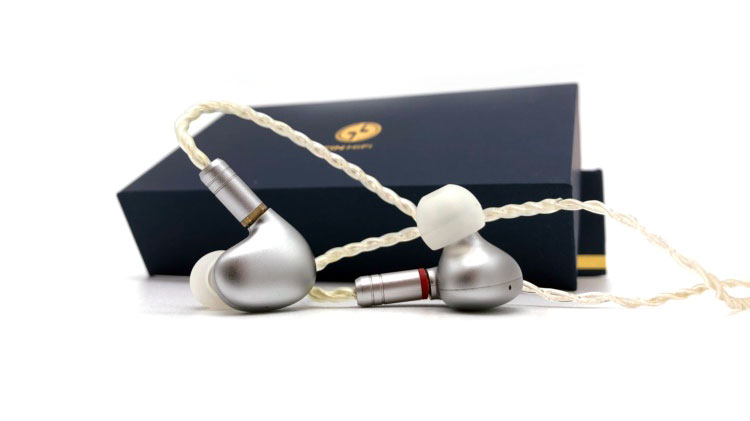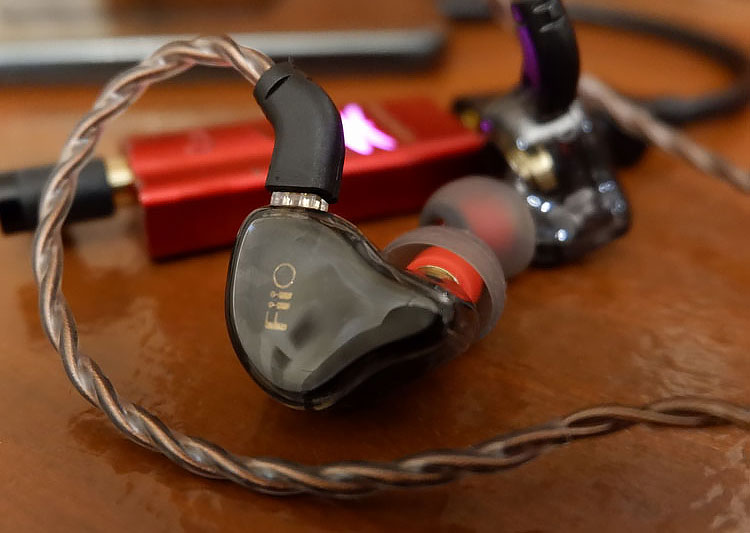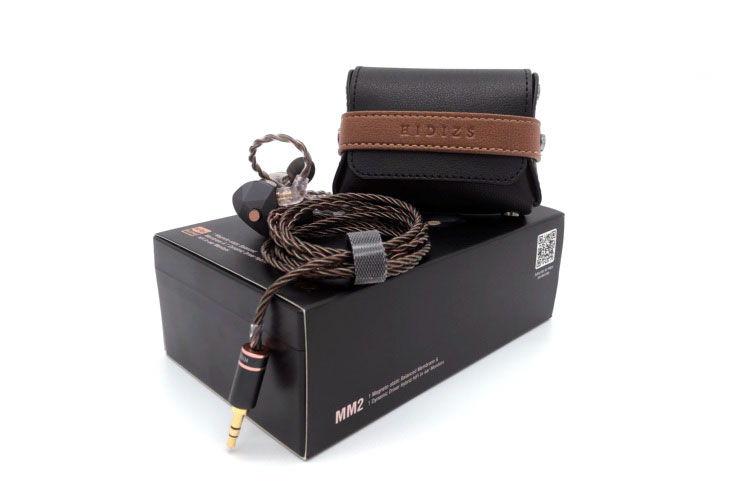Our review today covers the new Hidizs Mermaid MM2 IEM which uses a hybrid Magneto-static and dynamic driver configuration. It is priced at $79.
Disclaimer: This was sent to us as a sample for our honest opinion. Headfonics is an independent website with no affiliate links or services. We thank the team at Hidizs for giving us this opportunity.
To read more about Hidizs products we have featured on Headfonics click here.
Note, this article follows our latest scoring guidelines which you can read up on here.
Adding to the growing Mermaid series, the introduction of MM2 may share a few cues and technology but it is ultimately pitched to be different. Having used Knowles 33518 and 30017 BA drivers in varying configurations for its earlier hybrid monitors, Hidizs is now dipping its toes with the usage of a magnetostatic balanced membrane.
Also featuring a rather unique tuning element, it is poised to be a revolutionary product for the future of the Mermaid line taking on more popular budget offerings. No longer the new kid on the block for IEMs, both Hidizs fans and not alike should take note.
Tech Highlights
Deciding for a magnetostatic balanced membrane is a welcome complement to the second-generation 10.2mm dynamic armature driver with a titanium-coated dynamic diaphragm of Hidizs separating them from the busy market of BA IEMs.
The dynamic drivers are designed to house dual voice coils and dual voice chambers removing unwanted resonance and increasing field strength. Specs of the magnetostatic driver however are not yet released at the time of writing aside from it being a 6mm in diameter low voltage unit so there is little to go on in that regard.
What’s likely to intrigue potential buyers is the capability to tune these to personal preference with swappable output nozzle filters for bass, balance, and treble that screws into a chamber cut from the face of the housing. At this price point, the MM2 can be considered a budget alternative to owning three IEMs for different genres and moods.
Design
It may be a coincidence but the MM2 shares the same basic geometrical patterns as the MS2 grown into looking more industrial and rugged. The finish of the aluminum alloy faceplate illuminates to a soft luster elevating its subdued guise.
A screw-on tuning valve is now situated where the Hidizs logo used to be with a chicly designed punchout top color-coded for visual identification. The base of the shell adds a ruby-like flare that will surely catch the gaze of curious onlookers.
Not as ‘on-the-fly’ as dip switches, switching sound signatures is a sit-down affair reminding me of the AKG N5005. To audiophiles with particular taste in their gears, this may be dividing but realistically the whole process shouldn’t take more than a minute.
Having a see-through resin body, the removable filter, the drivers, and other components are all ‘naked to the eye’ and a treat to marvel at. Though with closer inspection there are small traces of adhesives where the faceplate is attached to the clear resin body.
Comfort & Isolation
Putting these on, the aggressively looped ear hook was a bit tricky to put on at first but since adjusting my technique it has revealed its merits. The MM2 is reasonably wide and dense coming in at 5g per earpiece. The ear hooks hug the contour of the ear pretty snugly holding the shells firmly in place even with sudden head movements.
As a universal IEM, the molding of the resin body follows the ear shape quite naturally helping with comfort and isolation. The Nozzle depth is suitably positioned without the need for extra pressure pushing the tips in to create a seal.
Fitted correctly, these can filter out most droning sounds such as air conditioning units and mask out noisy neighbors next door.
Tips
There are two variations of unmarked tips split into three sizes each. Using the same material, the main distinction is that one has a taller body and a narrower bore than the other. However, inching the tips will indicate that the wider bore tips are also somewhat thinner and consequently softer in comparison.
Stock Cable
The cable provided is a 1.2m detachable quad-core squarely divided into two high purity silver and two OFC wires with a standard 0.78mm 2-pin IEM connector terminated in a 3.5mm gold plated plug. It is finished in a twisted pattern which is becoming more common and to a certain degree more tangle-resistant than braided.
It shares the same 3.5mm TRS jack with the MS2 while the split housing is now more simplistic with a rounded-off black case and a rose gold slider. Whilst on the thin side, the cable of the MM2 is decently impressive being free from microphonics even when directly touched.
Connecting the standard 2-pin connector to the IEM’s socket ensures a secure fitting with adequate pressure when pushing in.
Packaging & Accessories
Wrapped in a black cardboard sleeve with the Hidizs logo and an MM2 script in gold is a hard plastic box continuing on the dark theme that will extend to the contents. Opening the lid of the box reveals a three-part unboxing.
Its layout is pretty neat with the top half comprising of the foam block holding the IEM and the box for the cable tucked underneath. The bottom section is where the newly designed carry case resides with the ear tips and filters waiting to be exposed inside.
As if breaking a spell, the carry case is surprisingly smart-looking and could pass as a trendy coin purse with a cleanly stitched brown faux-leather strip for closing the cover. But with no pockets, bringing accessories such as the output filters may be a challenge.
Sound Impressions
The balance output filter and stock narrow bore tips were used in the formulation of the sound impressions. How the sound is changed by swapping filters and tips will be discussed separately.
Bass
There is richness in the low-end that gives beats a well-pronounced body. Playing synth-bass heavy music, I was able to get a decent amount of kick and sub-bass that sounds just above neutral but not too warm.
For other types of genres, the well-mannered bass region keeps the midrange intact without bleeding. The placement of drums and bass guitars is good and attracts enough attention only when needed.
Mids
Tonally, the midrange of the MM2 is pretty accurate maintaining a natural character for singers and instruments alike. Hidizs was able to stay true to its promise of engaging mids to come from its V2 drivers.
Powerful vocalists were able to belt their souls out without sounding bright, but lyrics can get a bit crowded in busy compositions. On easier songs, it was able to pull out details in vocals and instruments producing clear second voices and guitars with a nice pluck quality.
Treble
Texture and control in the high frequency are places I find the MM2 performing best. Capable of sorting through top-end information without sounding fatiguing, these monitors are not to be taken lightly in this price category.
It sounds crisp and airy giving a lively character and splash of vibrance to instruments. Cymbals sound fast with a rolling metallic clash, and saxophones are given enough vitality without the harshness usually found in brighter tuned earpieces.
Staging
The stage in the MM2 is wider than it is deep which can be loosely described as oblong shaped. It is responsive enough and able to get quite intimate and spacious if needed, maxing out around the shoulder area.
With a smaller-than-life picture, claps from live audiences are not as enveloping as expected but are well spread and able to give a dimensional effect. It does a great job in instrument placement as it separates and images quite well only being constrained by its average layering to fully master the effect.
Output Nozzle Filters
With a prominent tuning valve design, Hidizs wants to make sure would-be owners know that these monitors can be tailor-fitted to their preferences. And unlike filters that mask certain frequencies, the MM2’s replaceable tuners do not take away information as it forms sound waves.
In effect, there is a huge change in sound putting on the bass tuning giving a significant lift in the rumble of bass guitars plus sending for a meatier and fuller mid-bass. It projects a more forward midrange which slightly veils the treble making it seem darker in nature.
The one labeled treble on the other hand is a welcome treat for those who prefer a bright signature. Instantly, these gave the MM2 a wider and airier picture with lots of top-end energy only affecting the other frequencies by tipping the frequency response slightly in the counter-clockwise direction.
Ear Tips
Rotating between the provided narrow and wide bore tips was fun (and not) as both changed the signature in different areas where I wish a hybrid of the two is available.
The narrow bore tips present a minor bump in both ends of the frequency range increasing the soundstage and opening up the image allowing for a punchier bass and some air in the treble. While this may please a lot of people, its treble sacrifices a bit of natural tonality in cymbal crashes in exchange for a more etched-out and vivid splash.
Reaching for the wide bore tips, one can expect a more forward stage and better treble timbre. Guitars and vocals are relaxed but the politeness may leave some users wanting more immediacy.
Synergy
Efficiency
Anything with a headphone jack will drive these monitors with ease coming at 104dB/mW sensitivity and 18-ohm impedance. The only real consideration to think about is possible noise in high-gain DAPs and desktop amplifiers.
Keeping the iBasso DX150 Review w/ AMP6 module in low gain, I was able to get a quiet background. In this setting, 63 is where the digital volume landed to get plenty loud.
Switching to a beefier 3-watt desktop amplifier, the Burson Funk did push the MM2 with relative ease at the cost of slight hiss. Nudging the volume wheel to 7 o’clock is what it takes to excite the drivers to a comfortable listening level.
Pairings
Unsurprisingly these do not scale that much with higher-end gears. What I enjoyed doing with it though is experimenting with the ability of the drivers to adapt to a good signal.
Using the not-so-secret secret in the audiophile community, the dongle that comes with the iPhone drove the MM2 with relative cleanness although lacking a bit on the top-end clarity. With the iBasso DX150 w/AMP6 module, not only did the drivers get up to speed but its bass also received a nice bump making for a more satisfying experience.
For desktop users, the increase in output power does not mean better resolution. Although a clean amplifier paired with the use of a high-end DAC such as Chord Electronics Qutest gave the drivers of the MM2 a good massage finally sounding at its most natural.
Select Comparisons
Moondrop Aria
$79.99
Technical
One driver is enough for the Aria to create a buzz in the audio community. With a 10mm Liquid Crystal Polymer (LCP) diaphragm and Japan sourced Daikoku-CCAW voice coil, it promises excellent transients and transparent sound.
Moondrop also ensured no unwanted distortion in the upper frequencies with its newly designed high-frequency waveguide. Even without tuning options, the Aria is a serious budget contender when it comes down to sound quality.
Design
Visually striking in different ways, the Aria inspires elegance from the contrast of gold lines with its matte black case while the MM2 seems more hip with its gentle sheen. The metal injection molded housing of the Aria is denser and can get quite cold to the touch also sitting a bit weaker on the ear as compared.
Using a smooth and soft black sleeve, the thicker 2-core stock cable feels nicer than the plasticky grip of the MM2. The only unremarkable element of the Aria is the Y-split housing printed with the company name of Moondrop and a string of numbers on each side.
Performance
The Aria is not at all bass light but its mid-bass is pulled-back compared to the MM2 though it is more forward in the midrange. Clarity and air in these two frequencies are closely behind the MM2 when listening for the intricacies of drums and separating second voices.
Expecting a cohesive treble coming from the high-frequency waveguides, these did not disappoint with the crispness and space peeking through although it has a recession that leaves anticipated sparkle a bit hushed. Taking these into account the stage of the Aria is more intimate in contrast.
TinHifi T2 Plus
$59.99
Technical
Wildly popular in the budget segment when it launched, the original T2 made it clear that TinHifi had a winning formula in its hands. Being a descendant of the T2 and T2 Pro, the T2 Plus promises even better sound characteristics using tuning practices from the planar magnetic P1 and the higher-end T4.
TinHifi used a 10mm NanoPure nickel-zinc alloy dynamic driver to achieve this guarantee. Though unrelated to its smaller drivers the T2 Plus has a lesser frequency range of only 10Hz-20kHz.
Design
Opposing the angular face of the MM2, TinHifi smoothed out the aluminum alloy housing of the T2 Plus into a small and rounded footprint. The T2 Plus will most likely fly under the radar worn outside having a more universal impression.
Its MMCX cable is braided and terminated in a gold-plated 3.5mm plug with a nice silver housing knurled for added grip. The ear guide is pretty impractical since the MMCX connector protrudes well beyond the natural curvature of the ear making it merely useful for microphonics management.
Performance
Proving it has the chops to compete above its price tag, the T2 Plus did not make it easy for the MM2. Its low-end suits music that requires immediacy and punch. With a warmish tilt, bass lovers will surely enjoy these qualities but the fuller-bodied nature of the MM2’s bass is worth considering.
MM2 did however best the T2 Plus in tuning the mids with its lifelike quality offering a resolving experience in vocal-heavy tracks. With treble, the MM2 is thinner but more detailed in comparison.
Impressive for its housing size, the T2 Plus is capable of replicating a good amount of stage. While staging is a bit closer than the MM2 it still manages to produce great imaging from both ends of the picture.
FiiO FD1
$59.99
Technical
Beryllium drivers will usually be found in high-end products such as Focal, ZMF, and some IEMs that are way more expensive but the FD1 chose this light and extremely rigid material in plating its diaphragm.
And being capable of producing nearly 1 Tesla of magnetic field intensity courtesy of its N50 two-way magnets it also shares a similarity with Beyerdynamic’s flagship T1 model. Challenging the MM2 in the choice of material category, this in-ear monitor from FiiO has a few luxuries in store.
Design
Outwardly sharing a similar see-through body, the FD1 is still not as upscale as the MM2. Being covered entirely in plastic doesn’t offer the same amount of presence even with its notable celluloid face plate inlay.
While the cable of the FD1 may be thicker, the 2-pin socket on the IEM just seems awkward not being the same width as the 2-pin connectors on the cable. Plus, the ear hook doesn’t support the IEMs with its memory guide sloping away from the back of my ear.
Performance
The various technical features housed inside the FD1 gave a different vibe to its presentation noticeably leaning towards honesty with a reserved attack yet still giving it traits that makes it a decent performer for its price. However, near the MM2, the FD1 had a few obvious shortcomings.
Bass guitars in the MM2 are applied with a more intricate low-end rumble and the overall bass image is simply tighter and cleaner in comparison. Listening to some female vocals, the FiiO’s ruler flat midrange makes ballads seem dry and lifeless continuing to a smoother treble with at least a decent amount of detail.
Where I found the FD1 excelling is in its wide soundstage extending well outside the head. Instrument placement is clear and overall imaging is above average.
Our Verdict
Joining the mermaid series, the MM2 is a statement on Hidizs’ appreciation of innovation with its uniquely graphene-coated diaphragm and the recent advancement of their dynamic armature driver.
Including tuning options and filters is not exclusive to Hidizs, but punching out the faceplate gave greater accessibility to the MM2’s inner cavities in modifying the sound with its three flavors all having a distinct difference from one another. Any defects found in tonality are well within expectations and can be fixed by pairing with the right equipment.
Easy to drive and comfortable to wear, the Hidizs MM2 is a great option in the increasingly competitive budget category with above-average performance and driver control.
Hidizs Mermaid MM2 Specifications
- Frequency response: 20Hz – 40kHz
- Sensitivity: 104±1dB@1kHz
- Impedance: 18Ω@1kHz
- Weight: approx..10g (excl. earphone cable)

